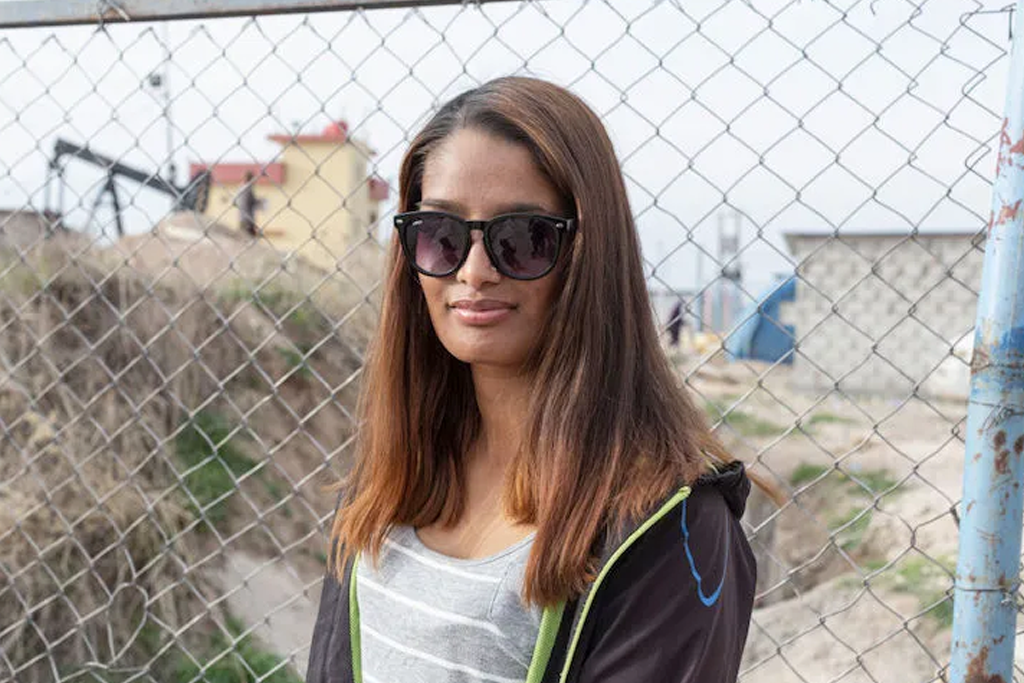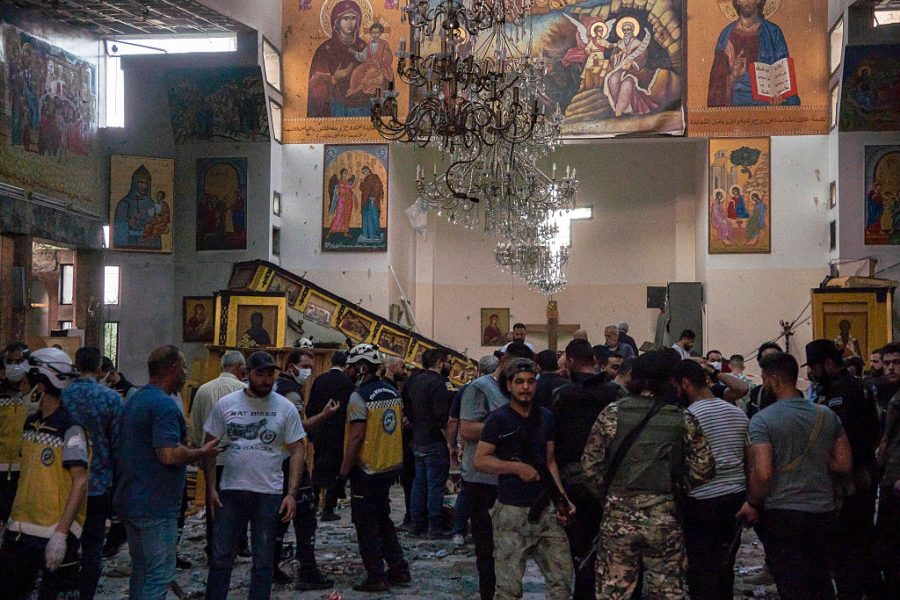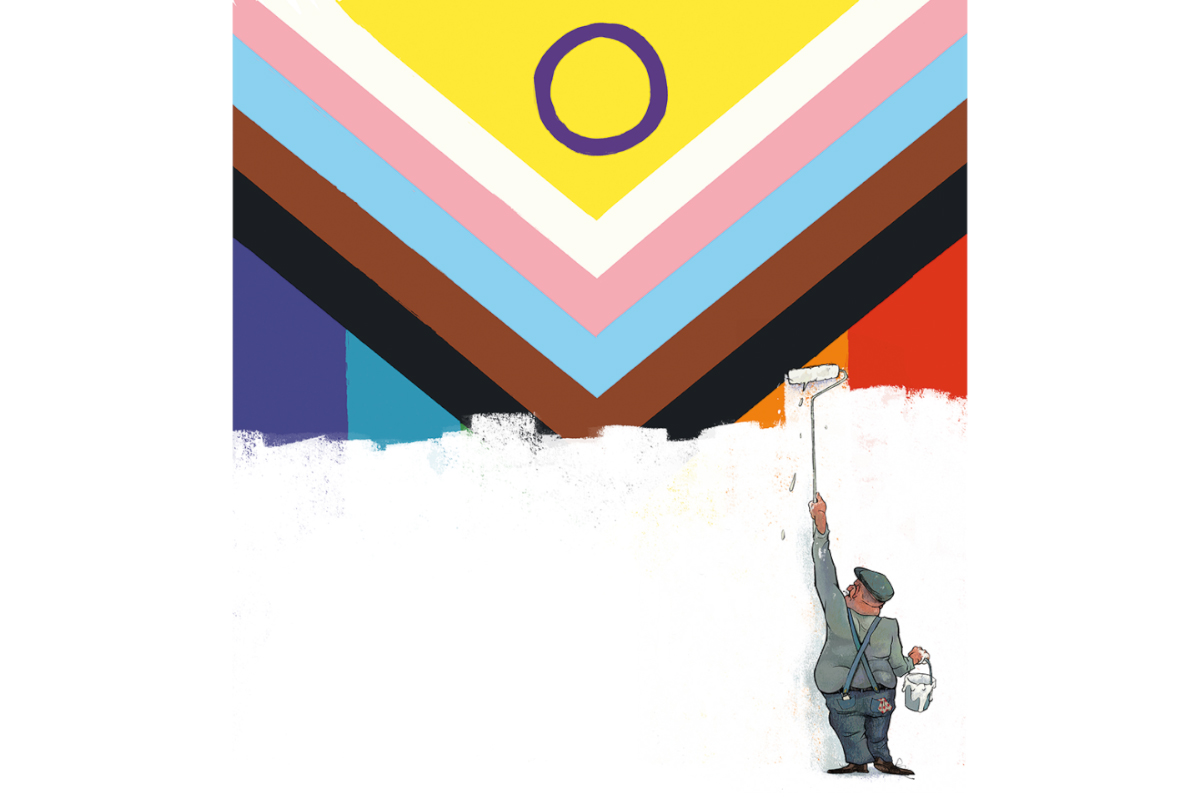I am a fifty-six-year-old dad of four. I live with my wife and dog just south of London, where I run a successful building firm. But I also know Shamima Begum, who this week lost her appeal to have her citizenship reinstated, perhaps better than anyone else in Britain — apart from her family. I’ve visited her six times, traveling across thousands of miles and warzones to meet the jihadi bride.
That’s because I’m one of the world’s foremost extreme tourists. My holidays have taken me to Iraq, Syria, Afghanistan, Chechnya, Somalia, North Korea and Chernobyl. I have infiltrated the KKK, was the first westerner to visit the Black Hawk Down crash site in Mogadishu and have embedded myself with Kurdish militias fighting ISIS.
In June 2021, I went to meet Shamima in the al-Roj prison camp in Syria. Over the next year, we formed a strong friendship. We would regularly swap texts and she occasionally asked me to bring her things from back home in Britain, including clothes from Primark. She’s a size zero.
When I first met her she was refusing to speak to journalists because she had been stripped of her citizenship after a notorious interview; in 2019, she told the Times of London that seeing decapitated heads in trashcans “didn’t faze” her. I’m a working-class boy and there was part of me that wanted to see if I could speak to Shamima. All of the Oxbridge journalists had tried and failed. (I’ve got nothing against Oxbridge, I just wanted to see if I could get where they couldn’t, and I did.)
It’s probably my background that helped us bond; during our first chat, we talked about the TV series Friends. If I’m honest, sitting in front of this petite young woman, I felt sorry for her. She reminded me of my daughter. I found myself agreeing with those who said she’d been groomed. After all, she had been trafficked and found herself married and pregnant at fifteen, and was now alone in this camp. All three of her children had died by the time I met her. At the end of our walk around the dusty camp, Shamima gave me a hug goodbye.
Once I got home, journalists started getting in touch. I was asked to help produce a live interview with Shamima from al-Roj for Good Morning Britain. I had never produced anything before. I thought she was going to say no. When I got back to Syria, she was hiding in the camp shop. I had to ask some of the other girls to convince her to do the live interview, although looking back I don’t think she needed much convincing.
During a break in filming, Shamima threw an odd sort of tantrum. I had to talk her into going back on camera, but the moment she was in front of the lens she changed. There was a confidence I’d not expected.
Perhaps sensing I’d noticed, she asked me to walk with her around the camp after the interview. She showed me pictures of her children. In one photo, the child had chocolate around his mouth. She told me they had been making a cake. I began to well up.
Back in the UK, I told people I thought this former Bethnal Green schoolgirl had been groomed — because she must have been, mustn’t she? I managed to get a phone to Shamima and we started texting. I remember the first WhatsApp: “Hey Andy, it’s Shamima.” I told her how sorry I was about the death of her children. She replied saying she was “over” that. I was shocked. How can you ever be “over” something as terrible as that?
Despite my growing misgivings, I agreed to return to the camp with a different broadcaster. After filming, Shamima and I sat on a concrete slab with her Dutch friend, another ISIS bride. They told me that, on summer evenings, they would come here and dance. When we first met, Shamima told me she loved her husband, Yago Riedijk, but this time she said he had mentally abused her. Her friend appeared to be egging her on. It all seemed so strange.
I traveled to Syria in June last year for our final meeting. Shamima had asked me to bring her some clothes and two books, Guantanamo Diary by Mohamedou Ould Slahi and Sea Prayer by Khaled Hosseini. I didn’t take the books, but I did take her the clothes as well as a Spider-Man costume for one of the other girls’ kids. She became angry, saying she wanted the books far more than the clothes and, anyway, they didn’t fit.
Later that day, I helped set up an interview with a different ISIS bride. Shamima was furious and went back to her tent saying she was sick from the heat. She seemed then like a petulant teenager, but I’m not sure that was right. Having sat and spoken with her many times, I now think that Shamima only ever really cared about Shamima. Perhaps she did, as has been reported, have the capacity to sew people into suicide vests.
Still, I have mixed feelings about the decision to strip her of her citizenship. A strong part of me thinks she should be brought to Britain and tried for her alleged crimes. But during the time I spent with her I also went from thinking that she had been groomed to thinking that she was trying to groom me.
Whatever the right answer to the question of her citizenship, we need to stop saying that Shamima was some kind of teenage victim. Everyone is an individual, responsible to some degree for their own actions. She was certainly mature enough to get herself through airports and over the Turkish-Syrian border. This isn’t a dumb kid.
I never had an agenda when I met Shamima — I’m just a bloke who enjoys going to very dangerous places. And I don’t have an agenda now. But what I saw was a woman who transformed herself from an innocent schoolgirl into a jihadi. Now she’s trying to transform herself back into the innocent victim. Part of that seems to be an ability to forget things: forgetting what she did under Isis; forgetting her own children.
I find it harder to forget. The BBC has now made a podcast about her, she’s had a photoshoot for the cover of a magazine and she’s been the subject of several documentaries. I’ve helped set up other interviews with her, which I feel conflicted about. The victims of ISIS will never get those things.
This article was originally published in The Spectator’s UK magazine. Subscribe to the World edition here.

























